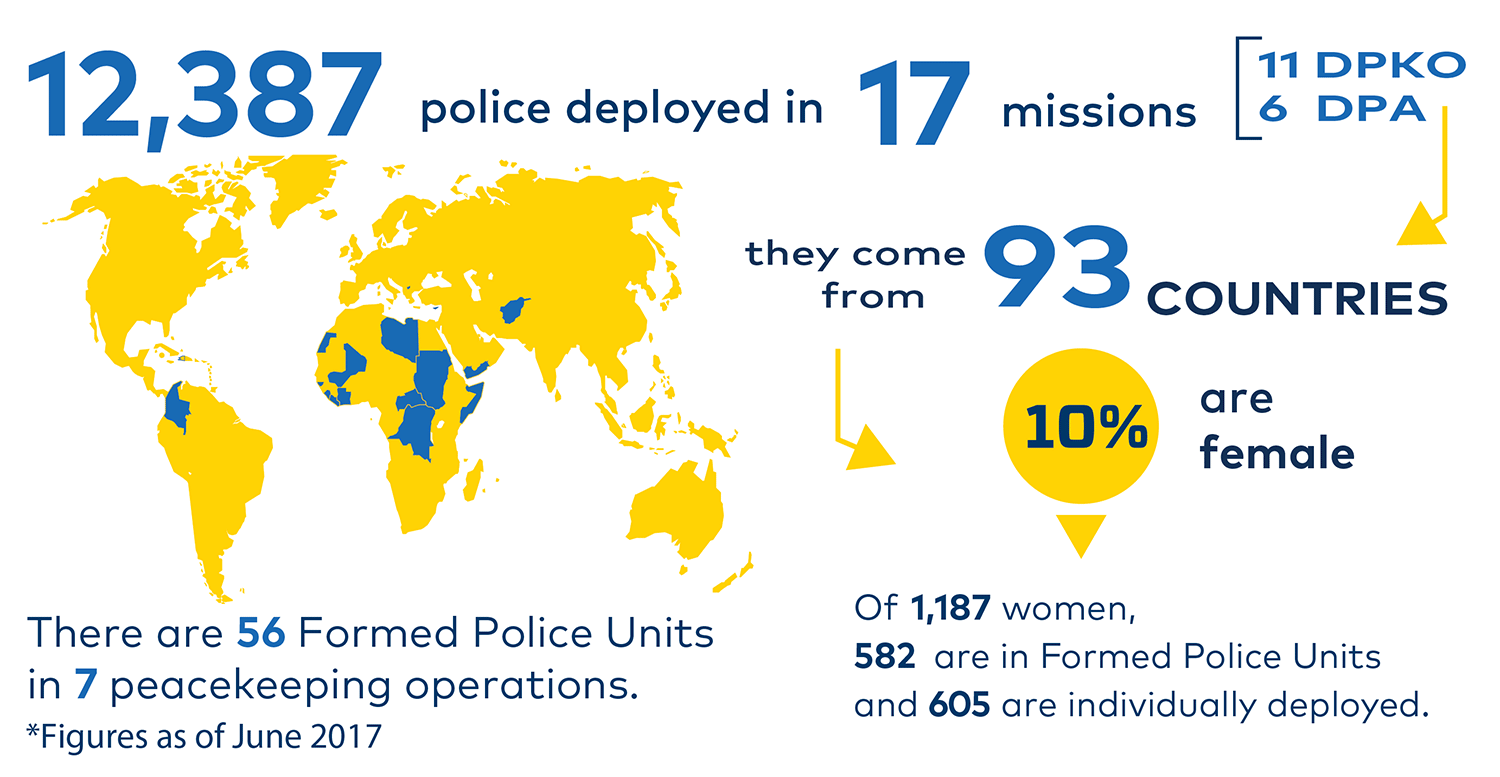Policing must be entrusted to civil servants who are members of police or other law enforcement agencies of national, regional or local governments, within a legal framework that is based on the rule of law. Police and law enforcement officials have the obligation to respect and protect human rights (S/2016/952).
What is the mission of UN police?
The mission of United Nations Police is to enhance international peace and security by supporting Member States in conflict, post-conflict and other crisis situations to realize effective, efficient, representative, responsive and accountable police services that serve and protect the population.
To that end, United Nations police build and support, or, where mandated, act as a substitute or partial substitute for, host-State police capacity to prevent and detect crime, protect life and property and maintain public order and safety in adherence to the rule of law and international human rights law.
United Nations police pursue community-oriented and intelligence-led policing approaches to contribute to the protection of civilians and human rights; address, among other things, sexual and gender-based violence, conflict-related sexual violence and serious and organized crime; and conduct investigations, special operations and electoral security (S/2016/952).
How does the UN conduct policing?
United Nations police officers work in unfamiliar environments and must navigate among the policing approaches of colleagues from about 90 countries.
They bring different policing cultures and experience to the job, but are united in the United Nations Police Strategic Guidance Framework for International Police Peacekeeping (SGF), the policy foundation for UN policing, which was completed in 2016. It consists of an overarching Policy on UN Police in Peacekeeping Operations and Special Political Missions and, four sets of guidelines on police capacity-building and development, police command, police operations and police administration. Further manuals and training documents will be developed that are in compliance with the tenets of the SGF.
The framework assists UN Police in developing specialised job descriptions to recruit the right type of personnel for field missions, and enhances the effectiveness of pre-deployment and in-mission training. All UN police training materials developed after the completion of the Strategic Guidance Framework for Police Peacekeeping are incorporating its guidance.

Find out more about what UN police does in the field
UN police officers are working in 12 UN peacekeeping missions. Their mandates include:
- Supporting the reform of the national police in Haiti as part of MINUSTAH
- Addressing and preventing serious and organized crime, as part of capacity-building as part of MINUSMA in Mali, including crime-scene management
- Developing capacity to provide public order during election periods, such as in the DR Congo as part of MONUSCO
- Contributing to the protection of civilians in in South Sudan
- Facilitating the recruitment of 500 police and gendarmerie in the Central African Republic as part of MINUSCA
